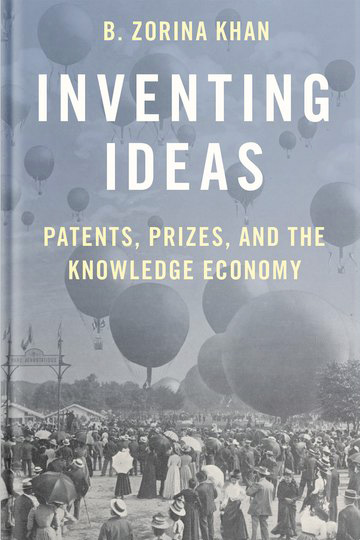
- Publisher: Oxford University Press
- Available in: Hardcover, Paperback, Ebook
- ISBN: 9780190936082
- Published: June 8, 2020
What determines why some countries succeed and others fall behind?
Economists have long debated the sources of economic growth, resulting in conflicting and often inaccurate claims about the role of the state, knowledge, patented ideas, monopolies, grand innovation prizes, and the nature of disruptive technologies.
B. Zorina Khan’s Inventing Ideas overturns conventional thinking and meticulously demonstrates how and why the mechanism design of institutions propels advances in the knowledge economy and ultimately shapes the fate of nations. Drawing on the experiences of over 100,000 inventors and innovations from Britain, France, and the United States during the first and second industrial revolutions (1750-1930), Khan’s comprehensive empirical analysis provides a definitive micro-foundation for endogenous macroeconomic growth models.
This groundbreaking study uses comparative analysis across time and place to show how different institutions affect technological innovation and growth. Khan demonstrates how top-down innovation systems, in which elites, state administrators, or panels make key economic decisions about prizes, rewards and the allocation of resources, prove to be ineffective and unproductive. By contrast, open-access markets in patented ideas increase the scale and scope of creativity, foster diversity and inclusiveness, generate greater knowledge spillovers, and enhance social welfare in the wider population.
When institutions are associated with rewards that are misaligned with economic value and productivity, the negative consequences can accumulate and reduce comparative advantage at the level of individuals and nations alike. So who will arise as the global leader of the twenty-first century? The answer depends on the extent to which we learn and implement the lessons from the history of innovation and enterprise.